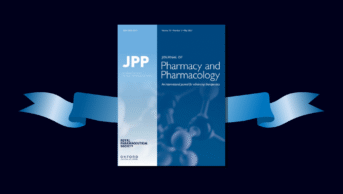
Shutterstock.com
A platform trial used to assess treatments for COVID-19 during the pandemic will, for the first time, look at treatments for people hospitalised with severe influenza.
The ‘Randomised, embedded, multi-factorial, adaptive platform trial for community-acquired pneumonia‘ (REMAP-CAP) was originally established in 2016 by researchers from several countries to assess treatments for community-acquired pneumonia during pandemics.
During the COVID-19 pandemic, the trial showed that both tocilizumab and sarilumab led to a 24% reduced risk of mortality when given to patients within 24 hours of them entering intensive care, which led to NHS guidance published in January 2021 that both the rheumatoid arthritis medicines should be considered for treatment of COVID-19.
In a news story published by Imperial College London on 29 November 2022, it was revealed that the National Institute for Health and Care Research (NIHR) will provide the new REMAP-CAP trial with £2.9m of funding to test multiple flu treatments, including the antivirals oseltamivir (Tamiflu; Genentech) and baloxavir (Xofluza; Genentech), as well as steroids and anti-inflammatory drugs shown to be effective against COVID-19 in previous REMAP-CAP research.
The story added that more treatments may be added in future.
It will be led by researchers and clinicians from Imperial College London and Imperial College Healthcare NHS Trust, who will work with NIHR and other experts to recruit children and adults hospitalised with severe flu from 150 UK hospitals. The trial is expected to run for two years.
Anthony Gordon, the new trial’s chief investigator, who works at Imperial College London’s Department of Surgery and Cancer and at Imperial College Healthcare NHS Trust, said: “This winter, we might see more flu cases than usual as the virus potentially resurges after pandemic measures have kept levels low.
“We hope that our trial will help to find urgently needed flu treatments rapidly. Our COVID-19 trial changed clinical practice globally, and we hope we can impact flu treatment and reduce winter pressures on the NHS in the same way.”
Commenting on the announcement, Penny Ward, visiting professor in pharmaceutical medicine at King’s College London, said: “There is extensive data already available for oseltamivir (which has been available in the market for almost 30 years) in hospitalised patients demonstrating that those receiving treatment within 24 hours of admission are significantly less likely to die or need ICU/ECMO or other invasive care.
“It would be interesting to see how this existing data is being dismissed in order to justify this study which, given all we know now, appears to deliberately disadvantage patients admitted with influenza pneumonia that are randomised to the ‘no antiviral’ arm. I can appreciate that, as baloxavir is a more novel antiviral, this agent has not been studied as extensively in hospitalised patients.
“However, in common with oseltamivir, reduction in need for hospitalisation/death has been shown when it is used within 28 hours of first onset of illness in high-risk patients within the community.”


